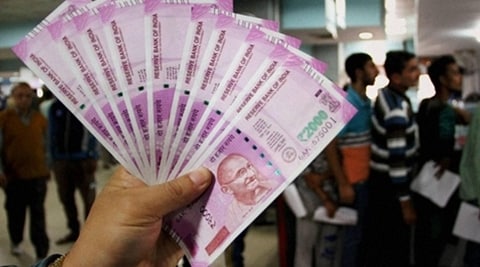The cost of merchant discount rate (MDR), borne by oil marketing companies at the instance of the Reserve Bank of India (RBI) since the note ban, may be shifted to the government, with retrospective effect. “The government is open to compensating them (OMCs),” said a person close to the development, requesting anonymity.
MDR is charged at 1% on credit card payments and 0.25-1% on payments via debit cards. It is levied when fuel is purchased and passed on to the bank concerned as a convenience fee. The issue of MDR cost on OMCs is only for debit cards as credit card users get around 45 days to repay and so the cost is passed to them.
State-owned fuel retailers Indian Oil, Bharat Petroleum and Hindustan Petroleum had reportedly agreed to continue to pay MDR until a final decision is taken on who will foot the bill. As the new impost created a row, the government had said that neither the fuel buyer nor the dealer will have to bear its cost. An OMC executive told FE that the firm will bear the cost till March 31 as directed by the RBI.

Another OMC executive, requesting not to be identified, said it is obvious that the OMCs will ask to be compensated for MDR as its cost will indeed affect the companies as it is anyway in addition to discount given to customers for cashless transactions. MDR is in addition to a 0.75% discount given to customers for using cashless means to buy fuel from December 13, 2016, which was announced to push such transactions amid a cash crunch in the economy.
According to a government official, after Prime Minister Narendra Modi invalidated old R500 and R1,000 currency notes on November 8, transactions via debit cards at fuel outlets rose to R250 crore a day, of the total cashless sale of around R480 crore per day. Before the note ban, total cashless sales was just R150 crore per day.
Post-demonetisation, no MDR was charged to encourage cashless transactions at fuel outlets till December 31.
In January, though, banks started asking for MDR but the All India Petroleum Dealers’ Association and the Consortium of India Petroleum Dealers declined and said they may stop accepting card payments. However, oil minister Dharmendra Pradhan intervened and assured that dealers and consumers will not have to pay the charge.
According to the government official, after the feud between dealers and banks came to light, debit card transactions fell to Rs160-170 crore per day but later picked up to around Rs180 crore per day. “It is sort of stabilising at these levels but we are hopeful it will go up,” said the official.
You may also like to watch this video
According to government data, around 70% of the roughly 53,500 retail outlets have digital payment acceptance infrastructure and around 33,200 outlets have point-of-sale machines.


